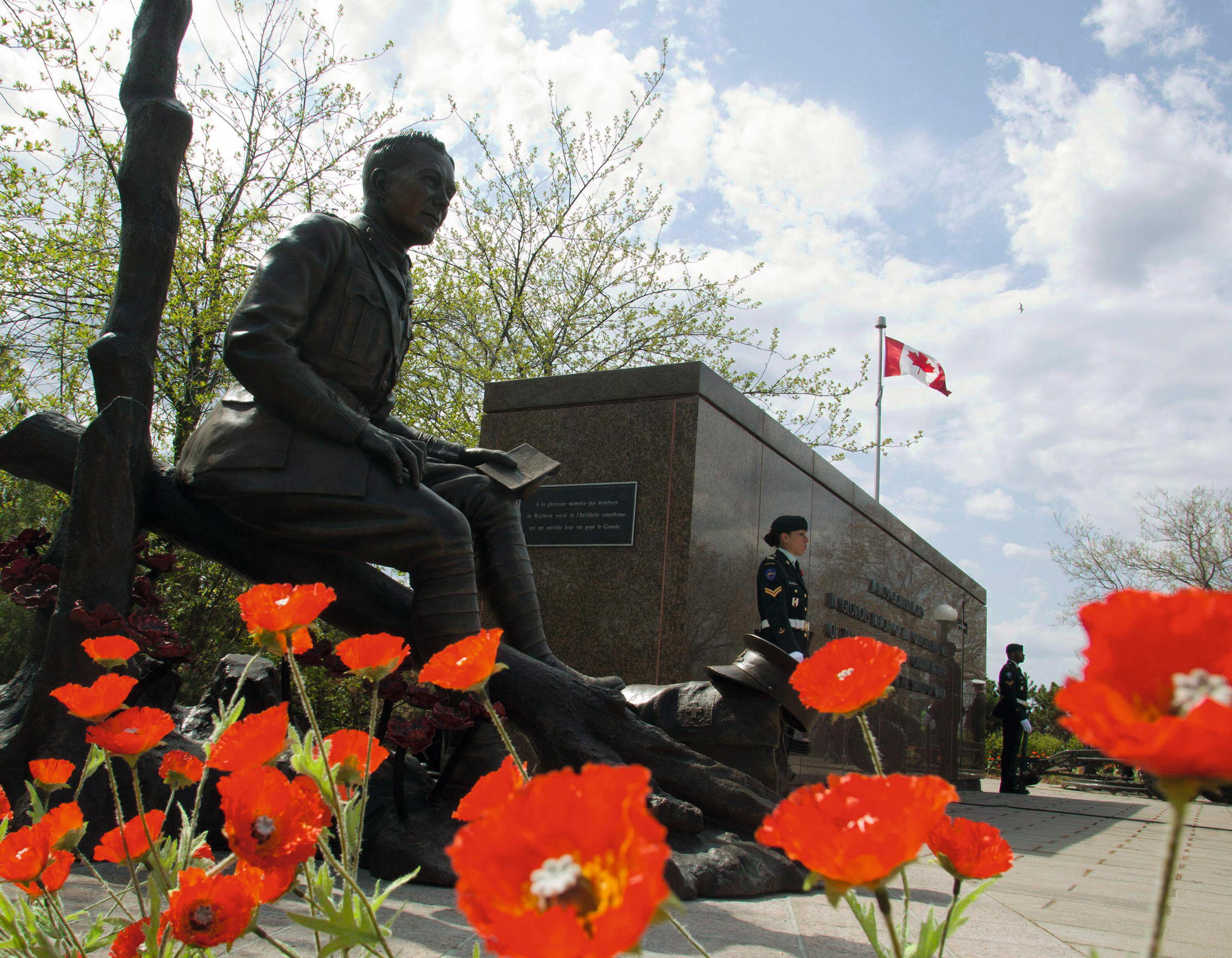John McCrae: The solider, surgeon and poet whose words inspired the Poppy Appeal
John McCrae's beautiful words written amid the horrifying bloodshed of the First World War linked the poppy and remembrance for ever more. Kate Green tells his story.


'In Flanders fields the poppies blow Between the crosses, row on row.'
In 1915, Lt-Col John McCrae, a Canadian army surgeon working in the field in France in the First World War, wrote his famously moving poem about the flowers that refused to die amid the carnage of Flanders. It was to mark the death of a friend killed in the Second Battle of Ypres and was published in Punch that December. McCrae’s poignant words quickly gained traction, being used in recruitment propaganda and to raise money selling war bonds.
McCrae (1872–1918) didn’t survive the war — he died of pneumonia and is buried in the Commonwealth War Graves near Boulogne, France. However, his words had a huge impact and the idea of the poppy as a symbol of remembrance caught on.
In 1918, they were read by an American teacher, Moina Michael. She was particularly affected by the last lines — ‘If ye break faith with us who die we shall not sleep/though poppies grow in Flanders Fields’ — and went out to search the shops of New York for artificial poppies for Armistice Day. For the rest of her life, she campaigned for the poppy to be a universal emblem of fundraising for servicemen whose lives, and those of their families, had been destroyed by war.
In 1921, Field-Marshal Douglas Haig, who had been commander of the British Expeditionary Force on the Western Front, ordered nine million silk poppies for the Earl Haig’s British Legion Appeal Fund, to be sold on Armistice Day in Britain. Haig’s wartime role has been heavily criticised, but, with his wife, Dorothy, the Earl devoted the rest of his life to fundraising, prompting the opening of The Poppy Factory in Richmond in 1922, a thriving Forces charity that benefited some 900 veterans in 2023 and made more than 115,000 wreaths.
Moina Michael, incidentally, wrote her own poem in 1918, entitled We Shall Keep the Faith, which includes the lines: ‘And now the Torch and Poppy Red/We wear in honour of our dead/Fear not that you have died for naught.’
Sign up for the Country Life Newsletter
Exquisite houses, the beauty of Nature, and how to get the most from your life, straight to your inbox.
-
 'This wild stretch of Chilean wasteland gives you what other National Parks cannot — a confounding sense of loneliness': One writer's odyssey to the end of the world
'This wild stretch of Chilean wasteland gives you what other National Parks cannot — a confounding sense of loneliness': One writer's odyssey to the end of the worldWhere else on Earth can you find more than 752,000 acres of splendid isolation? Words and pictures by Luke Abrahams.
By Luke Abrahams Published
-
 The man who trekked Bhutan, Mongolia, Japan, Tasmania and New Zealand to bring the world's greatest magnolias back to Kent : 'A whirlwind of charm and energy... and a prince among plantsmen'
The man who trekked Bhutan, Mongolia, Japan, Tasmania and New Zealand to bring the world's greatest magnolias back to Kent : 'A whirlwind of charm and energy... and a prince among plantsmen'Magnolias don't get any more magnificent than the examples in the garden at White House Farm in Kent, home of Maurice Foster. Many of them were collected as seed in the wild — and they are only one aspect of his enthralling garden.
By Charles Quest-Ritson Published